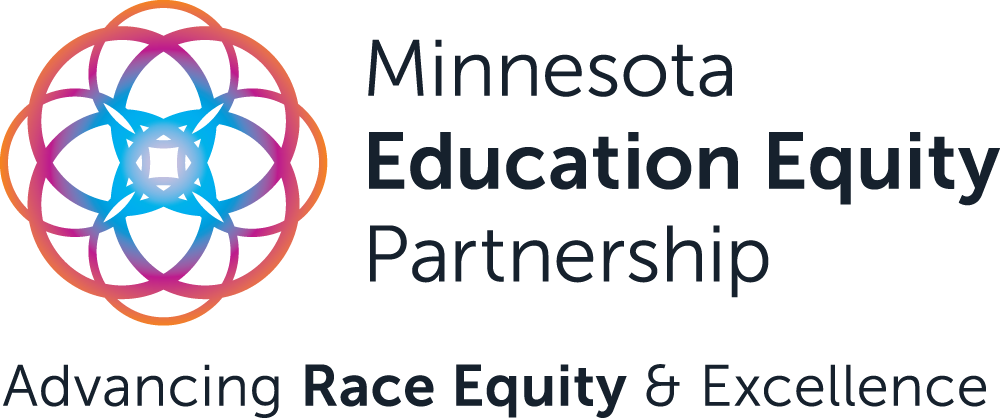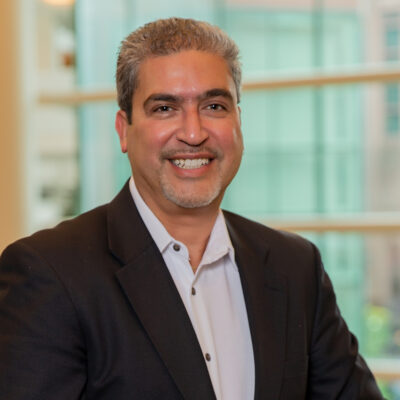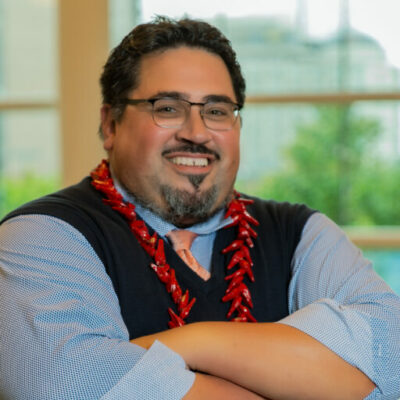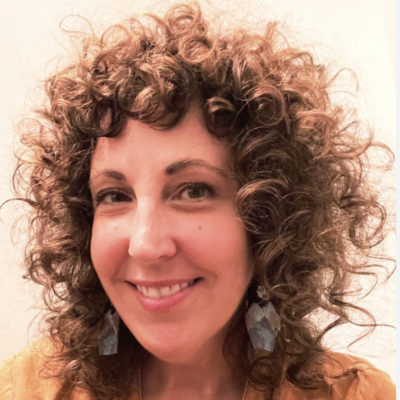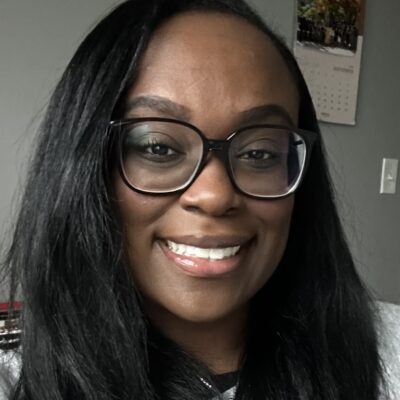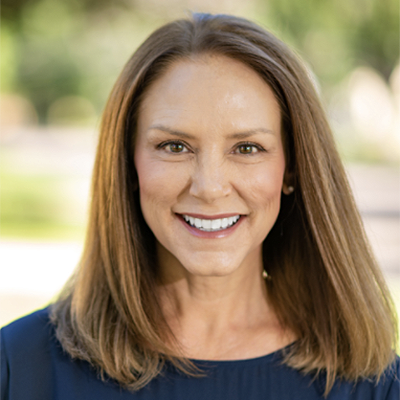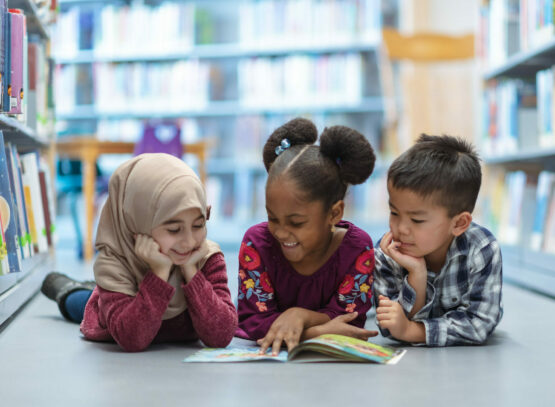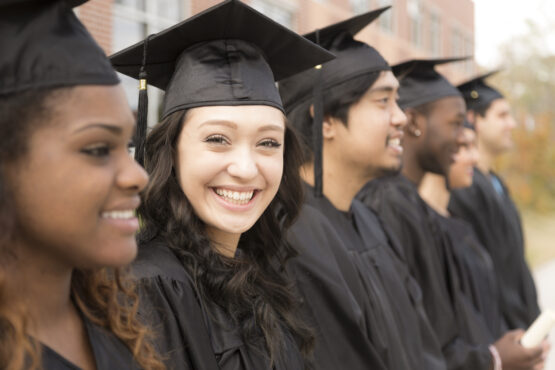Minnesota Education Equity Partnership Annual Report 2023
From Our Executive Director
The old adages, “Two steps forward, one step back” and “No work is ever completed” both have something to say about the MnEEP work for racial equity in education.
This summer’s landmark U.S. Supreme Court decision ending affirmative action in college admissions felt more than just “taking a step back”. It also evoked a painful reality that anti-racism work is never done and that victories today don’t preclude defeats tomorrow.
It wasn’t lost on MnEEP that students who are people of Color and Indigenous (POCI) are disproportionately the ones who are excluded from post-secondary and as such, to whom affirmative action sought to provide equitable opportunities.
On the local scene, those same dynamics for taking a step backwards appeared when some in law enforcement called for undoing a new state law barring E-12 school resource officers from physically restraining students and when the Governor, who had proposed the new law, then expressed a willingness to hold a special legislative session to change it.
It wasn’t lost on MnEEP that POCI students are disproportionately the ones harmed by such use of force and for whom the law sought to provide relief.
After powerful gains for ethnic studies, we saw a proliferation of state and local laws across the nation to ban books and to limit how Black history should be taught in schools.
It wasn’t lost on MnEEP that as POCI student populations grow, they are disproportionately the ones whose historical story is being made difficult to told.
Knowing that no racially equitable social policy is ever safe from being pushed back, MnEEP continues to passionately inform how education policies and practices can be shaped to empower POCI students for achieving academic excellence and ending the racial predictability of student outcomes.
This year, MnEEP sought systemic change work by following several strategies;
- We worked to shape “how” the public thinks about ending racism. For instance, we spoke out publicly on Affirmative Action and we conducted webinars to counter the detracting and false attacks on critical race theory,
- We worked through our Race Equity Training Center to help educators use culturally validating pedagogies to engage students,
- We published the State of Students of Color/American Indian Students Report to show how policy can be re-shaped for just and inclusive learning environments,
- We conducted student conferences for promoting practices that better support POCI students,
- We informed the state legislature and community advocates on how to build financial aid policies that expanded opportunities for POCI students and on how to build capacity in our public schools to fully meet the needs of K-12 students learning English.
With every passing year, our society and state become more racially and culturally diverse. With that has come a growth in POCI leaders and policymakers with social and political power.
But while that bodes well for increasing racial equity and educational excellence for POCI students, we’ve observed that racial justice and educational excellence can indeed be driven backwards. Our students and communities need us to keep taking steps forward, to keep “re-winning” for their inclusion and well-being.
MnEEP will do that. We will use social and political science for strategies to keep racial justice and inclusive educational excellence moving forward.
Join us in being clear on what it takes for racial equity.
—Carlos Mariani Rosa
MnEEP Executive Director
Our Team
Our Board
Our board members are integral to our mission.
Our Board members have wide variety of experience and expertise in education. Their range of skills and perspectives are integral to the progress and success of our organization. Several members have served with MnEEP for a number of years, helping us shape and support our achievements.
We are thankful for their continued leadership and commitment as we work towards educational equity in Minnesota.
Officers
Dr. Bernadeia Johnson, Chair; Faculty, Minnesota State University Mankato
Josefina Landrieu, Vice Chair; Sr. Director of Equity and Inclusion, Metropolitan State University
Bryan E. Bass, EdD, At Large, Assistant Superintendent of Equity & Achievement, Osseo Area Schools
Dr. Sandy Pulles, Secretary; Vice President of Equity & Inclusion, ServeMinnesota
Megan Rozowski, Treasurer; Director of Research & Policy Development, Minnesota Private College Council
Suzan Samaha, Community Member
Members
Dr. Stanley Brown, Coordinator of Equity & Inclusion, Hopkins Area Public Schools
Virginia Clay-Chism, IT Director at Medtronic
Kim Ellison, Chair, Minneapolis Board of Education
Dr. Satasha Green-Stephen, Associate Vice Chancellor of Academic Affairs, Minnesota State Colleges and Universities
Dr. Jacqueline Bailey, Vice Chancellor of Information Technology & CIO, MinnState Information Technology Services
Dr. Stanley Brown, Coordinator of Equity & Inclusion, Hopkins Public Schools
Kim Ellison, Chair, Minneapolis Board of Education
Jeremy Rupp, Community Education Coordinator, Duluth Public Schools
Dr. Darrell Stolle, Chair, Education Department, Concordia College
Roshandra Brown, Minnesota Private College Council (MPCC) – Director of Development and Scholarship Programs
Mission & Vision
MnEEP transforms systems, structures, and public narratives to advance race equity and excellence in education.
We envision a racially just society in which each student achieves their full potential.
Led by People of Color and Indigenous (POCI) thought leaders and experts, MnEEP uses a race equity lens to develop and advance networks, practices, research, and policies to dismantle racism in education and build a more just, equitable Minnesota.
We work to make an impact by advancing and transforming:
- Policies
- Practices
- Resource Flows & Research
- Networks, Relationships, Connections & Convening
- Power Dynamics
- Mental Models & Narrative Change
- Critical Response
Join us to build equitable education spaces that uplift and empower Minnesota’s POCI students and advance racial equity and excellence in education.
Our Values
Equity Matters.
Every child deserves to achieve their full potential for success and excellence regardless of race, creed, nationality, or class.
Justice Matters.
Every child deserves to achieve their full potential for success and excellence regardless of race, creed, nationality, or class.
History Matters.
It is vital to address systems, structures and public narrative change by honoring the histories of communities of color and American Indian communities.
Relationships Matter.
Cross-cultural dynamics and collaborative relationships are key to changing systems, structures, and public narratives.
Self-Actualization Matters.
The ability of students to be engaged learners—to understand themselves, their histories, their identities, and the world—is necessary to build critical thinking skills to release their power in shaping themselves and the world.
Big Bold Goals
Big Bold Goal 1: Race Equity Planning
Minnesota educational leaders and cultural communities create equitable education systems, structures and public narratives.
Big Bold Goal 2: School Climate
Minnesota educational systems are designed to bring BIPOC students into relationships with schools and teachers that promote their human dignity.
Big Bold Goal 3: Teachers of Color
Minnesota educational systems advance racially and culturally responsive teaching and learning environments for teachers and students.
Big Bold Goal 4: Emerging Multilingualism (EML)
Minnesota educational systems advance racially and culturally responsive teaching and learning environments for teachers and students.
Big Bold Goal 5: Higher Ed Access and Equity
Minnesota higher education systems are transformed to be racially just, responsive, and accessible for students of color and American Indian students.
Our Work
How we’re transforming practices, policies, and public narratives to build an education system in Minnesota where each child can thrive.
Policy
Working alongside education leaders and race equity advocates to inform, shape, and advocate for core policies that support the success of Minnesota’s students of color, English Learners, and Indigenous students.
- Through the Emerging Multilingual Learners (EML) Statewide Network and state and national partnerships, MnEEP successfully influenced policy decision-makers through multiple legislative proposals to positively have an impact on ELs and EMLs in Minnesota K-12 Education including: EL funding, ESL teacher licensure; administrative relicensure; EL family engagement/advocacy, and more.
- MnEEP continues to be a state leader in the area of policy advocacy as it relates to much-needed EML and EL policy shifts leading to transformative change in K-12 Education, aligned to the LEAPS Act of 2014-15, and recognizes the critical importance of community, families, students, and statewide partners and institutions in making positive changes for EMLs and ELs across the state.
- MnEEP advocated for essential policy reform to the state grant formula and program as well as targeting critically important resources to better support People of Color and Indigenous (POCI) students on college and university campuses across Minnesota, including leading the statewide movement on developmental education reform in higher education.
- Thanks to the research and insights of MnEEP’s College Race Equity Advocacy Advisory Council (CREAAC) Chairs and Members, and many state and national higher-ed partners, the Minnesota State Legislature passed a bill that would ensure the State Grant will cover the costs of developmental education courses without counting towards a student’s grant term limits.
Although the Minnesota Legislature was unable to pass a Higher Education Omnibus Bill in the Spring of 2022, MnEEP’s policy advocacy efforts and ongoing analysis of systemic changes needed in higher education continue to powerfully influence racially equitable policy shifts in Minnesota’s Higher Education systems and institutions through partnerships centered on generating transformative policy proposals and higher education bills.
- During the 2022 legislative session, Minnesota House lawmakers passed a bill that would allow for multiple measures to determine student placement in developmental education courses in Minnesota’s higher ed institutions.
- This essential bill was celebrated for removing one of the many systemic barriers to postsecondary education for Minnesota’s students of color and Indigenous students. It had been informed by critical Minnesota Education Equity Partnership (MnEEP) research and two years of expert analysis and input from MnEEP’s multiracial College Race Equity Advocacy Advisory Council (CREEAC).
- MnEEP also informed and advocated for a policy proposal mandating that higher education institutions notify high school students of their exemption from having to take the Accuplacer test if their Minnesota Comprehensive Assessment (MCA) college-ready benchmark scores met the standard for being ready for college, thus removing another barrier for People of Color and Indigenous (POCI) and students generally in higher education systems.
- The bill currently sits in the hands of the Minnesota Senate, for passage in 2023.
Research
Using a race equity lens to guide essential research, policy recommendations, and best practices for building meaningful systems change.
- Utilized a solutions-based approach through building 5 case studies addressing the benefits of Culturally Validating Pedagogy and Leadership (CVP/L) for POCI students.
- Implemented the CLEAR Solutions Framework as a mixed-methods research meta-frame for advancing and supporting MnEEP’s Five Big Bold Goals.
- Designing future research connected to the LEAPS Act to support English Learning standards for PELSB and MDE.
- Supported and informed standards for effective practice, Cultural Competency, and intersectional identities for MDE.
2023 State of Students of Color & American Indian Students Report
Also updated Research Standards for Reporting on Students of Color & Indigenous Students
Research Standards for Reporting on Students of Color & Indigenous Students
Advocacy
Supporting families, communities, students, districts, educators, and higher-ed staff and faculty in building a movement for racial equity.
Working alongside CREAAC to develop tools for building racially diverse and supportive higher-ed systems after ending of Affirmative Action.
Continued to design communications strategies using blogs and toolkits to deepen knowledge, shift perspectives, and build grassroots advocacy and collaboration for systems change.
Networks & Convenings
Deepening relationships, sharing insights, and building best practices and advocacy for advancing race equity in education in Minnesota.
- Held monthly collaborative meetings with RCT researchers to incorporate a CLEAR Solutions Framework and mixed-methods research principles which provided the foundation for the original research that is producing the MnEEP’s upcoming case studies.
- Expanded our College Race Equity Advocacy Council (CREAAC) to maintain a state-wide, multi-racial advocacy group to plan out, promote and direct our policy agenda.
- Conducted three on-campus multi-racial symposia on College Race Equity with more than 125 students, faculty, administrators, and local community members.
- Events were held at: a) Macalester College (St Paul) in October 2022, b) U of M, Mpls in January 2023, and Concordia College/Moorhead State in Moorhead, MN in March 2023.
- Held a state-wide higher-ed convening on Connecting for Advancing Race Equity in Higher Education with nearly 200 staff, faculty, policymakers, higher-ed leaders, students, advocates, and researchers gathered to share knowledge, experiences, and best practices for advancing race equity in excellence for students of color and Indigenous students.
- Structured engagements convening post-secondary institutional system representatives to exchange ideas for targeted services and commitments to support POCI students.
- Engaged with national race equity leaders also working to reform higher education systems.
Educator Leadership Services
Providing training, educator support, and race equity planning for districts and institutions across the state.
Continued to partner with Minnesota State University Mankato in facilitating the MnEEP Superintendent Race Equity Leadership Network to inspire, equip, and connect Minnesota superintendents as they strive to apply race equity practices and policies in their school districts that center local communities, families and students.
Superintendents across Minnesota & North Dakota completed their two-year cohort and a new group from Minnesota & North Dakota began participation in a two-year cohort.
Narrative Shift
MnEEP works to shift public perceptions and narratives to build meaningful connections, deepen understanding, and increase advocacy for building a racially just education system in Minnesota.
- Re-launched the School Climate Toolkit to provide educators, students, and parents with the insights, tools, and supports they need to challenge discriminatory practices in school discipline practices and special ed placement.
- Held multiple convenings with educators, district leaders, cohorts, and higher-ed leaders to gain insights into their needs as race equity leaders and advocates.
- Launched new video highlighting the collaborative, transformative work of MnEEP and what we continue to build together.
Working alongside CREAAC members to define and develop key plans, actions, and practices for advancing racial equity in colleges and universities across Minnesota in the wake of the Supreme Court decision to end Affirmative Action.
Our Members & Partners
Our Members, Partners & Funders are critical to sustaining the work of MnEEP
As formal partners, these organizations generously support our efforts to promote systems level change through funding, invaluable expertise, and strategic resources and commitment.
- Brooklyn Center Independent Schools
- Hopkins Public Schools
- Macalester College
- Minneapolis Public Schools
- Minnesota Office of Higher Education
- Minnesota Private College Council
- Minnesota State Colleges & Universities
- Northwest Suburban Integration School District
- Robbinsdale Area Schools
- Saint Paul Public Schools
- University of Minnesota
-
- Macalester College
- MN Board of School Administrators (BOSA)
- MN Professional Educators Licensing and Standards Board (PELSB)
- Minnesota Department of Education (MDE)
- Planting People Growing Justice
- Propel
- Rebuilding the Village
- Univ. of MN – College of Education/Human Development
- Minnesota State University – Mankato
- LatinoLEAD
- Ed Allies
- Project MOMENTUM
- St Thomas University
Foundation and Corporate grants are the lifeblood of our nonprofit. Their investments in Minnesota Education Equity Partnership (MnEEP) and our work are essential and we are humbled and thankful for their ongoing support of this work.
We continue to be immeasurably grateful to our all of our those who provide financial support and thought leadership to MnEEP, and graciously acknowledge their contributions to this work.
-
- 3M Foundation
- Bush Foundation
- Otto Bremer Foundation
- ECMC Foundation
- Enterprise Holdings Foundation
- Greater Twin Cities United Way
- Joyce Foundation
- Lumina Foundation
- Mardag Foundation
- Minneapolis Foundation
- Minnesota Office of Higher Education
- Mortenson Foundation
- CBI Propel
- St. Paul Foundation
- Greater Twin Cities United Way
- Securian Foundation
MnEEP’s College Race Equity Advocacy Advisory Council (CREAAC), a state-wide, multi-racial advocacy group working to direct and advocate for new polices to advance race equity in Minnesota’s higher education systems.
We are grateful for their work!
CREAAC Members List:
Ambar Hanson
Mortenson Family Foundation – Executive Director
Alison Kadlec
SOVA – Senior Partner
Carlos Mariani Rosa
MnEEP – Executive Director
Jon Peterson
MnEEP -Program Consultant
Sandy Pulles
ServeMN – Vice President of Equity & Inclusion
Fernando Rodriquez
U of M – Director of Multicultural Center for Academic Excellence
Megan Rozowski
MN Private College Council – Director of Research & Policy
Jenny Xiong
Century College – Academic Advisor
Lara Couturier
Couturier Consulting LLC – Founder
Nekey Oliver
MN Office of Higher Education – Director of Grants & Government Relations
Molly Priesmeyer
Good Work Group – Principal, Strategist, Communications Consultant
Robbie Burnett
MN State – Director of Innovation & Collaboration
Bruce Corrie
Concordia St.Paul – Associate VP for Government & Community Relations Professor of Economics
Roshandra Brown
ConnextMSP – Network Manager
Nicola A. Alexander
U of M – Professor Associate Dean for Undergraduate Education, Diversity, and International Initiatives
Billie Annette
Minnesota Chippewa Tribe – JOM Coordinator
bannette@mnchippewatribe.org
Kim Hildahl
Carleton College – Trio/Student Support Services – Director
Tricia Wilkinson – Board of MnEEP – At Large/Treasure
Trio Upward Bound, College of Ed & Human Development, U of M – Director
Josefina Landrieu – Board of MnEEP – Vice Chair
Metropolitan State University – Vice President of Equity and Inclusion
Jesse Mason (In place of Satasha Green-Stephen @MinnState)
Minnesota State Colleges & University System – Interim Associate Vice Chancellor for Academic Affairs and Student Affairs
Pa Dao Yang – Board of MnEEP – Treasure
City of Bloomington – Equity & Inclusion Program Specialist
- Dr. Michelle Benegas, Hamline University
- Dr. Ashley Karlsson, Southeast Service Cooperative
- Ahmed Keynan, Minneapolis Public Schools
- Leah Soderland, Mounds View Schools and MinneTESOL
- Dr. Amy Stolpestad, Hamline University
- Dr. Karla Stone, University of Minnesota
- Yee Yang, Minneapolis Public Schools
- Dr. Amy Young, Minnesota Department of Education
- Heidi Bernal, Community Member and Hamline University
- Dr. Jill Watson, St. Olaf College
- Rep. Carlos Mariani, MnEEP
- Leiataua Dr. Robert Jon Peterson, MnEEP and TE2 Consulting
- Michelle Chang, CAAL
- Sam Ouk, Prior Lake-Savage Schools
- Michael Bowlus, Minnesota Department of Education
- Leigh Schleicher, Minnesota Department of Education
- Dr. Rev Hillstrom, MnEEP
- Leticia Guadarrama, Community Member
- Molly Priesmeyer, MnEEP and Good Work Group
- Michelle Vaught, Minnesota PELSB
- Said Garad, Minneapolis Public Schools
- Andrew Feigen, Student at the University of Minnesota
- Michelle Sandler, Minnesota PELSB
- Paulina Jacobsson, Minneapolis Public Schools
- Leiataua Dr. Robert Jon Peterson
- Dr. David Heistad
- Dr. Julio Ceaser
- Dr. Michael Rodriguez
- Dr. Nicloa Alexander
- Elizabeth Fontaine
- Jamie Wright
- Dr. Priyank Shah
- Nicole Tommerdahl Whelan
- Dr. Stacey Gray-Akeya
- Ethan Nererdahl
- Suzan Samaha
- Audra Stevenson
- Megan Rozowski
- Nanette Yureko
- Dr. Rose Chu
- Rola Cao
- Dr. Constance Robinson
- Jason Knighton-Johnson
- Ikram Mohamud
- Molly Priesmeyer
- Carlos Mariani Rosa
- Jeannette Lutter-Gardella
Moving Forward Together
Minnesota Education Equity Partnership wishes to recognize the individuals and organizations whose annual investments as Members, Partners, and Funders support education equity in Minnesota. What we do is made possible and strengthened by the community we have around us. The generosity of our Members, Partners, and Funders is a cornerstone of our work and a testament to the ways in which we can all lift each other as we continue to move forward as a state.
Membership also entitles you to vote for Board members and officers, and on other governance matters that sustain and help us manage the life of the organization.
